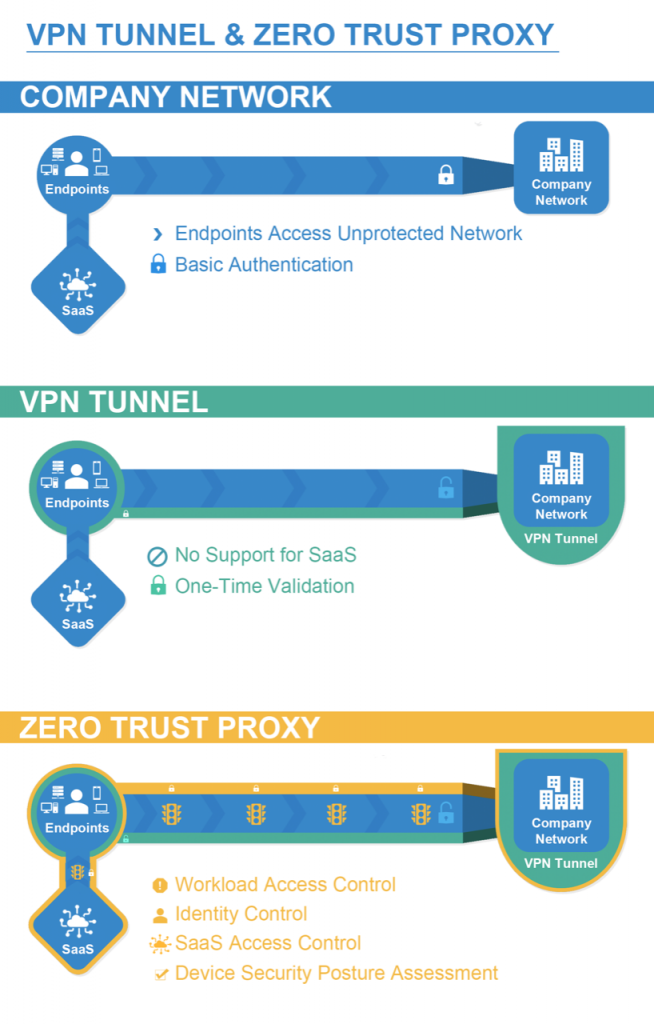The Benefits of Zero-Trust Security over VPNsThe Benefits of Zero-Trust Security over VPNs
Advanced cybersecurity threats and the shift to remote work demand a different security response. Enter zero trust.
June 3, 2021

Sponsored by Barracuda MSP
The shift to more remote work and collaboration has been happening for more than a decade, but the recent COVID-19 pandemic accelerated the process. While many workers will eventually return to offices, several companies are looking at more flexible models—including zero-trust security–that will allow more employees to work at least part of the time remotely.
As a result, over the past year, the use of virtual private networks (VPN) has expanded. While this approach can provide a secure connection to applications behind the corporate firewall, the increased use of cloud-based applications has complicated the security landscape. In some cases, network traffic generated by cloud applications is backhauled through a local data center before being passed on via a VPN to an end user. This can create significant latency issues (and a frustrating user experience).
As more employees move to remote work scenarios and adopt cloud apps and services, firms are looking for ways to eliminate the problems associated with using cloud apps and VPNs together.
One potential solution is a cloud gateway, such as the Barracuda CloudGen Access platform. The platform employs a zero-trust approach based on a secure access service edge (SASE) concept, and it can route network traffic via a secure cloud gateway directly to a cloud application or an on-premises IT environment.
Zero-trust security can help reduce the effectiveness of increasingly complex phishing attacks. While cyber attacks are evolving in ways that make them very difficult to detect using traditional methods, zero-trust applies cybersecurity policies at the identity level. Adopting this kind of security strategy is especially important as the idea of a network perimeter becomes obsolete. If employees can work from anywhere, what perimeter is the IT team supposed to defend?
As the name implies, zero-trust solutions restrict access uniformly to all users. As phishing schemes become more challenging to detect and stop, this is a critical distinction. A VPN connection assumes that the user, and device on the other end, are secure. However, the rise in business email compromise (BEC) and other types of attacks means that the credentials used to access these solutions are no longer trustworthy.
With a zero-trust approach, you protect users, their devices and their distributed workloads. In the case of CloudGen Access, that means the solution continuously verifies that the right person, authorized device, and proper permissions are in place for accessing an application or company data. CloudGen Access provides authorization, access management and workflow management for multi-cloud or hybrid IT environments, and without the VPN-related backhauling that can degrade performance.
As many organizations and end-users learned during the rapid shift to remote work in 2020, VPN solutions can make work more complicated and slower. A zero-trust network access

approach provides companies with the flexibility to offer secure access quickly and easily. Last year, many companies were caught unaware and had to cobble together remote access solutions. A zero-trust approach provides a platform to seamlessly offer access without the hassles encountered with those ad-hoc approaches.
While traditionally a practical solution, VPNs are no longer able to keep up with the level of security and responsiveness required by remote employees. A zero-trust approach provides more reliable protection and agility, allowing security policies to be quickly and easily updated based on user needs. Additionally, zero-trust methods eliminate the resource-intensive requirements of a VPN, often in a more cost-effective deployment model.
Remote work has been a fact of life during the pandemic, and it’s likely to continue being a reality for many companies moving forward (at least for part of the work week). Zero-trust solutions like CloudGen Access can help enable secure remote work with fewer end user hurdles–and do so in a way that’s much more sustainable in an environment in which cyber threats evolve rapidly. Further, another benefit of the CloudGen Access solution is that MSPs can now monetize more devices than they could in the past.
Chris Crellin is Senior Director of Product Management for Barracuda MSP, a provider of security and data protection solutions for managed services providers, where he is responsible for leading product strategy and management.
This guest blog is part of a Channel Futures sponsorship.
Read more about:
MSPsAbout the Author
You May Also Like


